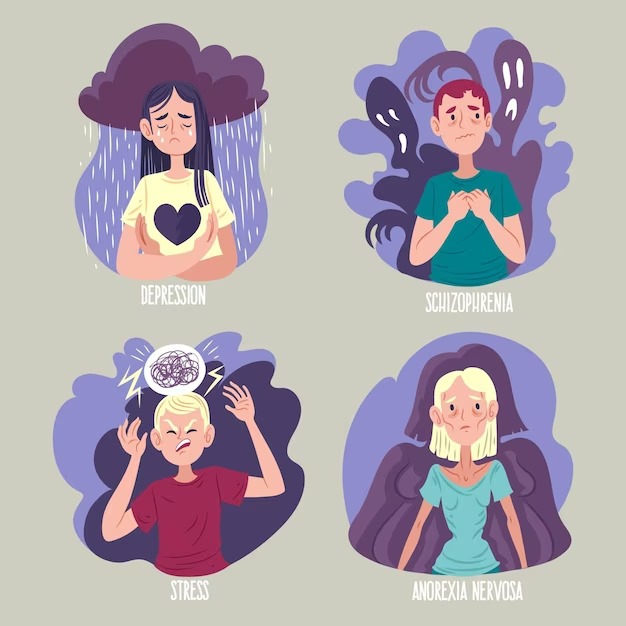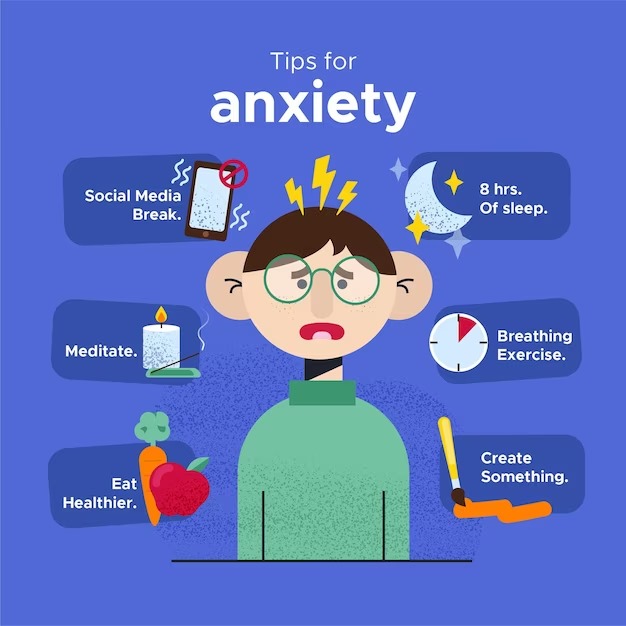Stress and anxiety are two emotional states that often overlap and can be challenging to distinguish. While they share some common symptoms, they are distinct in their causes and effects. Recognizing these differences is essential for anyone looking to navigate the complexities of modern life with resilience and well-being. In this article, we'll explore the fundamental distinctions between stress and anxiety, providing you with valuable insights to help you spot the difference and cope with each effectively.
Stress vs. Anxiety - Spot the Difference!
What is Stress?
Stress is a natural response to external pressures or demands. It can result from various situations, such as work deadlines, financial worries, or relationship issues. When you encounter stressors, your body releases stress hormones like cortisol and adrenaline, preparing you for a "fight or flight" response. Common symptoms of stress include:
Increased heart rate
Muscle tension
Irritability
Difficulty concentrating
Sleep disturbances
What is Anxiety?
Anxiety, on the other hand, is a persistent and excessive worry or fear about future events or situations. It often lacks a specific cause or can be triggered by minor stressors. Anxiety tends to be more generalized and pervasive, affecting your overall sense of well-being. Common symptoms of anxiety include:
Excessive worry
Restlessness
Fatigue
Racing thoughts
Sweating and trembling
Key Differences
Now that we've defined stress and anxiety let's delve into the key differences between the two:
Cause: Stress typically has a specific cause, such as a looming deadline or a traffic jam. In contrast, anxiety often lacks a clear or immediate cause, with individuals experiencing worry and fear without an identifiable source.
Duration: Stress is usually short-term and is often referred to as acute stress. It arises in response to a specific situation and tends to resolve once the stressor is removed. Anxiety, however, can be chronic, lasting for months or even years, and may require more prolonged management.
Physical Symptoms: While stress and anxiety share some physical symptoms, such as increased heart rate and muscle tension, anxiety tends to manifest more intensely and persistently in the body. Individuals with anxiety may experience these symptoms even when there is no immediate stressor.
Emotional Focus: Stress is primarily a reaction to external pressures, whereas anxiety often involves excessive worry and fear about future events or situations, even when there is no apparent reason for concern.
Response: Stress often motivates individuals to take action to address the stressor, such as meeting a deadline or resolving a conflict. Anxiety, on the other hand, can be paralyzing and may hinder one's ability to take constructive steps.
Treatment: The treatment approaches for stress and anxiety may differ. Stress management often involves relaxation techniques and time management strategies. Anxiety may require therapy, medication, or a combination of both.
Coping Strategies
Regardless of whether you're dealing with stress or anxiety, there are effective coping strategies you can employ:
Stress Management: Practice relaxation techniques such as deep breathing, meditation, or yoga. Prioritize self-care, maintain a balanced diet, and engage in regular exercise to reduce the impact of stress.
Anxiety Management: Seek support from a mental health professional who can provide therapy or recommend medication if necessary. Cognitive-behavioral therapy (CBT) is often effective in managing anxiety.
Lifestyle Changes: Make healthy lifestyle choices, including getting adequate sleep, reducing caffeine intake, and limiting alcohol consumption. These changes can positively impact both stress and anxiety.
Mindfulness: Incorporate mindfulness practices into your daily routine to stay present and reduce rumination on future worries. Mindfulness meditation can help you develop this skill.
Social Support: Connect with friends and family, and don't hesitate to lean on your support network when needed. Talking about your feelings can alleviate both stress and anxiety.
FAQs
Q: Can stress lead to anxiety?
A: Yes, chronic or unresolved stress can contribute to the development of anxiety disorders. It's essential to manage stress effectively to prevent its escalation into anxiety.
Q: Is it possible to experience both stress and anxiety simultaneously?
A: Yes, many individuals experience a combination of stress and anxiety. It's crucial to identify the dominant emotion to tailor your coping strategies effectively.
Q: Can lifestyle changes alone help manage anxiety?
A: Lifestyle changes, including exercise, a balanced diet, and stress reduction techniques, can be effective in managing mild to moderate anxiety. However, severe anxiety may require professional intervention.
Q: Are there any natural remedies for stress and anxiety?
A: Some people find relief from stress and anxiety through natural remedies like herbal supplements (e.g., lavender, chamomile) or aromatherapy. However, it's essential to consult a healthcare provider before trying any new treatments.
Q: Can stress and anxiety affect physical health?
A: Yes, both stress and anxiety can have a significant impact on physical health, potentially leading to conditions like high blood pressure, cardiovascular disease, and gastrointestinal problems.
Q: When should I seek professional help for stress or anxiety?
A: If stress or anxiety significantly impairs your daily life, causes severe distress, or persists for an extended period, it's advisable to consult a mental health professional for assessment and guidance.
Conclusion
In the complex tapestry of human emotions, stress and anxiety are threads that often intertwine. While they share some common characteristics, understanding their distinct features is vital for effective management and well-being. By identifying whether you're dealing with stress or anxiety, you can tailor your coping strategies to navigate life's challenges with resilience and optimism. Remember, seeking support from friends, family, or a mental health professional is a sign of strength and self-care. So, whether it's stress or anxiety you're facing, there's always a path towards a brighter, more balanced future.








